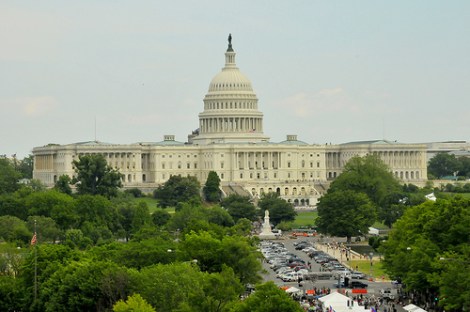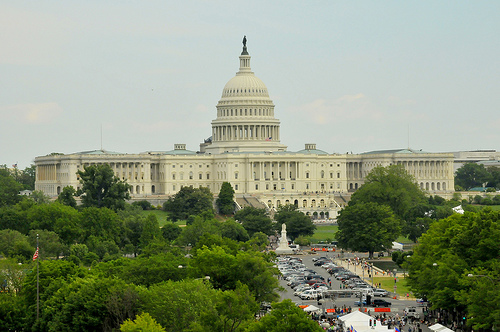
Presented for your consideration, two views of how the United States should develop and evolve its energy policy.
In an interview with USA Today (yesterday), outgoing EPA Administrator Lisa Jackson railed against obstructive Republican members of the House, and trumpeted the agency’s work on fighting climate change during her tenure.
Climate change is “a simple scientific statement,” said Jackson, who was in San Francisco on Tuesday to tour the city’s new energy-saving Public Utilities Commission building. She said the EPA’s so-called “endangerment finding” that greenhouse gases pose a public threat, upheld despite court challenges, has enabled the agency to use the Clean Air Act to start reducing their emissions and “help businesses to look forward to a different future.” …
There’s still a way to go, she acknowledged. She said the nation has to get to the point of accepting scientific evidence. She cited the EPA’s recent rules that set stricter standards for fine particle or soot pollution, which were based on EPA research — done at the request of the National Academy of Sciences — showing that soot is a cause of premature death. “And yet you have people argue about whether soot standards are beneficial,” she said.
Another challenge, she said, is Congress. Jackson repeatedly tussled with congressional Republicans and the fossil-fuel industry over anti-pollution regulations. “One of the questions everyone is asking themselves is whether the U.S. House of Representatives is actually going to reflect the will of the people on a lot of these issues, and the will of the people is awfully clear.” But people in Washington continue to argue about them “and that’s not good for our country,” she said.
Speaking of people in Washington, this morning the head of the U.S. Chamber of Commerce, Thomas J. Donohue, shared his bold vision for the future of America. To summarize that vision: Imagine if Ward Cleaver had been an oil industry executive. From his remarks:
We have more oil, gas, and coal than any other country and we are now the largest single natural gas producer in the world. We are now in a position to export liquefied natural gas and coal, and thus reducing our trade deficit and bringing billions of dollars into the United States. The abundance of affordable natural gas is attracting good manufacturing jobs back to America, particularly in the chemical and steel industries.
All of this adds up to a lot of jobs, growth, improved national security, and more revenues for government. …
To achieve these great benefits, we need to safely open up new land to exploration. We’ve foolishly locked away too much of our resources on land and off our coasts.
We need a predictable and fair regulatory environment. The federal government shouldn’t pick the winners and losers or subject energy projects to endless and duplicative reviews. Such roadblocks have stymied vital projects like the Keystone XL Pipeline, which must be built. We should stop EPA’s senseless and ideologically driven battle to ban the production and use of coal.
One of these people is staying in Washington to advocate his agenda. One of them, beaten down by the process, is leaving.




